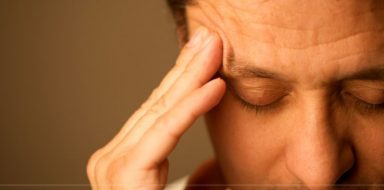How to Beat the Heat
Menopause is a natural stage when a woman's ovaries stop producing eggs and hormones such as estrogen and progesterone. It usually happens between 45 and 55 but can vary depending on each individual. Below, we will highlight some natural remedies for menopause relief, like Duavee, a medication prescribed for menopausal women to relieve hot flashes and prevent osteoporosis helping counteract the potential risks associated with estrogen therapy. Let's take a look.
Helpful Vitamins for Menopause
- Vitamin D.
- Calcium.
- Vitamin K2.
- Magnesium.
- Vitamin E.
- Vitamin B6.
- Omega-3 Fatty Acids.
- Black Cohosh.
6 Natural Remedies for Menopausal Symptoms
1. Black Cohosh
A herb that may help reduce hot flashes and night sweats by mimicking estrogen in the body. However, it may also cause side effects such as liver damage, stomach upset, headache, etc. The evidence for its effectiveness is mixed, and more research is needed. The recommended dosage is 40 to 80 mg daily for up to six months.
2. Soy
A plant-based source of phytoestrogens that may help balance hormones and relieve hot flashes and night sweats. However, it may also interact with some medications, affect thyroid function or increase the risk of breast cancer in some women. The evidence for its effectiveness is also mixed, and more research is needed. The recommended intake is 25 to 50 grams of soy protein or 40 to 80 mg of soy isoflavones per day.
3. Flaxseed
A rich source of omega-3 fatty acids and lignans that may help improve mood, cholesterol levels, bone health and vaginal dryness. However, it may also cause digestive issues, allergic reactions or interfere with blood clotting or hormone-sensitive conditions. The evidence for its effectiveness is limited, and more research is needed. The recommended intake is 1 to 2 tablespoons of ground or flaxseed oil daily.
Some people may experience depression during menopause. Read on to learn about what to do and how to cope.
4. Vitamin E
An antioxidant that may help protect the skin, nerves and blood vessels from oxidative damage and reduce hot flashes and vaginal dryness. However, it may also cause bleeding problems, headaches, nausea or increase the risk of stroke or prostate cancer in high doses. The evidence for its effectiveness needs to be stronger, and more research is required. The recommended intake is 400 IU of vitamin E per day.
5. Yoga, Aerobic Exercise and Breathing Exercises
Physical and mental activities help reduce stress and improve mood, sleep quality, blood pressure and cardiovascular health. They may also help alleviate hot flashes and night sweats by regulating body temperature and sweating mechanisms. However, they may also cause injury, fatigue or dehydration if performed excessively or not done correctly. The evidence for their effectiveness is moderate, and more research is needed. The recommended frequency and duration vary depending on the type and intensity of the activity.
6. Cold Drinks
Cold drinks are a simple way to cool down the body and prevent dehydration during hot flashes and night sweats. However, they may also trigger hot flashes or night sweats if they contain alcohol, caffeine or spicy ingredients. The evidence for their effectiveness is anecdotal, and more research is needed. The recommended amount is 8 to 10 glasses of water or other non-alcoholic, non-caffeinated beverages per day.
Duavee for Menopause
Duavee is a medicine made for women going through menopause. It mixes two things - one to ease hot flashes and the other to protect bones. By combining them, Duavee helps manage menopause symptoms and takes care of bone health at the same time. If someone is thinking about using Duavee, it's a good idea to chat with their doctor first to make sure it's a good fit for them.
Find Out Which Natural Remedy Fits You
Menopause can cause various symptoms that may affect a woman's physical, mental and emotional well-being. The most common symptoms are hot flashes, mood swings, insomnia, night sweats, vaginal dryness, weight gain, hair loss and more.
These symptoms can last months or years and range from mild to severe. Some women may treat their menopause symptoms with hormone replacement therapy (HRT) or other medications that can help restore hormone levels and relieve discomfort.
However, HRT and medications may also have side effects or risks that some women may want to avoid or minimize. Natural remedies may be an alternative option for these women to help them cope with menopause symptoms more safely and holistically.
Natural remedies are methods or substances that come from nature and are not synthetically produced or processed. They may include herbs, supplements, foods, exercises, mind-body techniques and more.
In this blog post, we will discuss some of the most popular and effective natural remedies for menopause symptoms that work. We will also explain their benefits, drawbacks, evidence, dosage and safety.
In conclusion, menopause is a natural stage of life that can cause various symptoms that may affect a woman's quality of life. Natural remedies are methods or substances that come from nature and can help relieve menopause symptoms more safely and holistically.
Some of the most popular and effective natural remedies are black cohosh, soy, flaxseed, vitamin E, yoga, aerobic exercise, breathing exercises, and cold drinks. However, not all natural remedies are suitable or effective for everyone.
Each woman has different symptoms, preferences, medical history, and goals. Therefore, it is essential to consult a healthcare provider before starting any natural remedy and regularly monitor its effects and side effects.
Researching and comparing different options is also advisable before choosing the best natural remedy for your menopause symptoms. By doing so, you can find the most suitable and satisfying solution for your menopause journey.







